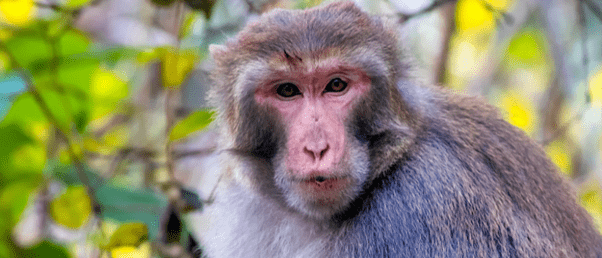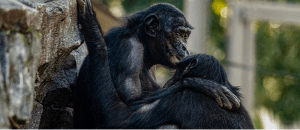Does being more social make your brain bigger?

New findings from a project studying the behavior of rhesus macaques have found an interesting link between macaque brain size and their social life.
A team of researchers from the University of Pennsylvania (PA, USA) and the Stem cell and Brain Research Institute (Lyon, France) have been studying a group of rhesus macaques living on an island off the coast of Puerto Rico for around 10 years. A recent study published from the project suggests that monkeys who have expansive social networks, like more grooming partners, have larger nodes in the brain that are responsible for social decision-making and empathy.
The human brain is complicated and understanding how external factors, such as socializing, can influence how it develops will lead to a deeper understanding of these complexities. However, studying the effect of behavior on brain development is not as simple as you’d hope.
Previous literature suggests that the size of some regions of the brain is loosely tied to social behaviors. However, as Michael Platt (University of Pennsylvania), co-author of this study, explains, “it’s hard to get granular data on human social interactions because we can’t follow people around all day long.”
 Insects: the remedy of choice for mama chimpanzees
Insects: the remedy of choice for mama chimpanzees
Researchers had been studying the same group of chimpanzees for 7 years. However, it wasn’t until 2019 that a volunteer noticed a never-before-seen behavior.
The island of Cayo Santiago (Puerto Rico) – known as monkey island – is home to a free-ranging population of rhesus macaques that were placed on the island in 1938 for researchers to study the natural behavior of monkeys in a controlled setting. In this study, the researchers monitored the monkey behavior in one social group of 68 monkeys.
Monkeys are social animals; however, some have more relationships than others, like humans. In this study, researchers wanted to compare the ‘popular’ monkeys with less social ones to investigate a link to the size of two key areas in the brain, the mid-superior temporal sulcus and ventral-dysgranular insula, which both have a part in social decision making and empathy.
The study closely monitored the group of monkeys and examined them for: their number of grooming partners, physical distance from other monkeys, connectedness to the popular monkeys in the network, and their ability to bridge between disconnected parts of the social network. Following the observation period, the team collected brain scans of all monkeys in the group, including infants.
The brain scans were particularly interesting as the infants had similar-sized nodes, whereas the team found a link between the monkeys classified as more social or ’popular’ and the size of the mid-superior temporal sulcus and ventral-dysgrandular insula, suggesting a link between social behavior and brain development.
Finding that the young macaques didn’t have these differences in brain structure was an unexpected finding. Jérôme Sallet (Stem cell and Brain Research Institute), who leads the research group, explains: “If we had seen the same correlation [in infants and adults], it could mean that if you are born from a very popular mother, then somehow you have a brain that predisposes you to become more popular later in life. Instead, what I think it suggests, is that the modulation we observe is strongly driven by our social environments, maybe more than by our innate predisposition.”
The study is based on observational science and, therefore, only provides a baseline to understand this correlation. However, it does shed some light on the proposed link between external relationships and brain development and has possible implications on human behavior, such as understanding neurodevelopmental disorders like autism.
For now, researchers will continue to study the behavior of these monkeys away from the influence of humans. As Platt says: “This is not some lab phenomenon. This is real life, the real world.”